기분이 센치하다는 무엇을 의미하나요?
기분이 센치하다는 민감하고 감성적인 감정을 뜻합니다. 이 표현은 특히 일상적인 상황에서 감정이 예민하게 반응하는 것을 표현할 때 사용됩니다. 기분이 센치하다는 어떤 것에 대해 더 깊이 생각하거나 더 많은 감정을 느끼게 되는 상태를 나타냅니다.
센치해졌다와 기분이 센치하다의 차이는 무엇인가요?
기분이 센치하다는 민감하고 감성적인 감정을 뜻하는 일반적인 표현이며, 센치해졌다는 현재의 감정 상태가 센치한 상태로 변한 것을 나타냅니다. 기분이 센치하다는 현재의 감정이 민감하고 감성적이라는 것을 나타내는 반면, 센치해졌다는 과거에는 그렇지 않았지만 현재 상황에서는 감성적인 감정을 느끼고 있는 상태를 설명합니다.
기분이 센치하다 영어로 어떻게 표현하나요?
기분이 센치하다를 영어로 표현할 때는 “sentimental”이라는 단어를 사용할 수 있습니다. “Sentimental”은 일상적인 상황에서 예민하고 감성적인 감정을 느끼는 상태를 의미합니다. 따라서, 기분이 센치하다는 표현을 “feeling sentimental”로 영어로 표현할 수 있습니다.
센치한 뜻은 무엇인가요?
센치한 뜻은 민감하고 감성적인 감정을 나타내는 것을 의미합니다. 센치하다는 일상적인 상황에서 예민하게 반응하거나 감정적인 감정을 느끼는 것을 말하며, 이를 통해 생긴 감정이 센치한 감정이라고 표현할 수 있습니다.
센치해진다의 뜻은 무엇인가요?
센치해진다는 현재의 감정이 예민하고 감성적인 상태로 변한다는 것을 의미합니다. 일상적인 상황 속에서 더 감정적이 되거나 민감하게 반응하는 상태를 설명할 때 사용되는 표현으로, 센치해진다는 감정의 변화나 감성적인 변화를 나타냅니다.
센치하다 일본어로는 어떻게 표현하나요?
센치하다를 일본어로 표현할 때는 “センチメンタル” (senchimentaru)라는 단어를 사용할 수 있습니다. 이 단어는 한국어의 센치하다나 감성적인 감정을 나타내는 표현과 유사한 뜻을 갖고 있으며, 센치하다를 일본어로 표현할 때 자주 사용됩니다.
센치 뜻은 무엇인가요?
센치란 현재의 감정이 감성적이고 예민한 상태를 의미합니다. 일상적인 상황에서 특정한 감정을 더 깊게 느끼거나 감정적으로 반응하는 상태를 나타내며, 센치는 감성적인 감정을 표현하는 단어 중 하나입니다.
센치해지다의 뜻은 무엇인가요?
센치해지다는 과거에는 그렇지 않았지만 현재의 감정이 더 감성적이고 예민해지는 것을 의미합니다. 센치해지다는 현재 상황에서 감정이 민감하고 감성적으로 변하는 것을 나타내며, 예전과는 다른 감정적인 반응을 보이는 상태를 표현합니다.
FAQs (자주 묻는 질문):
Q: 센치하다는 부정적인 감정도 포함되는가요?
A: 센치하다는 주로 긍정적인 감정을 표현하는 표현이지만, 때에 따라 부정적인 감정도 포함될 수 있습니다. 센치하다는 감성적이고 예민한 감정을 나타내는데, 이는 긍정적인 감정 뿐만 아니라 부정적인 감정에도 적용될 수 있습니다.
Q: 센치하다가 지속되면 어떻게 대처해야 하나요?
A: 센치하다는 본인의 감정을 민감하게 느끼는 상태를 의미하므로, 지속적으로 센치한 감정을 느끼는 경우 적절한 대처가 필요할 수 있습니다. 이 때는 현재 감정을 신중하게 다루고, 필요한 경우에는 친구나 가족과 이야기를 나누거나 전문가의 도움을 받을 수 있습니다.
Q: 센치하다가 다른 사람과의 대화에 어떤 영향을 미칠까요?
A: 센치하다는 사람들 간의 대화에서 민감한 감정을 느낄 수 있게 해주는데, 이는 다른 사람과의 대화에 영향을 줄 수 있습니다. 센치한 상태에서는 다른 사람의 얘기에 민감하게 반응할 수 있고, 더 많은 공감을 느낄 수 있으며, 때로는 더 많은 이해와 지원을 표현할 수도 있습니다.
Q: 센치한 감정을 자주 느낄 때에는 어떻게 관리할 수 있을까요?
A: 센치한 감정을 자주 느낄 때에는 정기적으로 휴식을 취하거나 스트레스 관리를 신경써야 합니다. 또한, 감정을 표현하고 이해할 수 있는 방법을 찾는 것도 중요합니다. 센치한 감정이 과도하거나 지속적으로 나타나는 경우 전문가와 상담을 통해 도움을 받는 것도 좋은 방법일 수 있습니다.
Winner – ‘센치해(Sentimental)’ M/V
사용자가 검색하는 키워드: 센치하다 기분이 센치하다 , 센치해졌다 , 기분이 센치하다 영어로 , 센치한 뜻 , 센치해진다 뜻 , 센치하다 일본어 , 센치 뜻 , 센치해지다 뜻
주제에 관한 이미지 센치하다

카테고리: Top 37 센치하다
여기서 더 읽어보세요: canhocaocapvinhomes.vn
기분이 센치하다
기분이 센치하다는 표현은 긍정적인 감정에 대해서도 사용될 수 있지만, 주로 부정적인 감정에 대해 사용될 때가 많습니다. 일반적으로, 사람들이 슬픔, 외로움 또는 이별과 같은 부정적인 감정에 대해 민감한 상태에 있을 때 기분이 센치하다고 말합니다. 이러한 감정적인 상태에 있는 사람들은 쉽게 울고, 감동받고, 남의 이야기나 영화 등에 쉽게 눈물을 흘릴 수 있습니다.
기분이 센치하다는 표현은 사람들이 자신의 감정에 민감하게 반응하는 것을 나타내지만, 그렇다고 해서 항상 부정적으로만 받아들일 필요는 없습니다. 사람들이 감정적으로 예민한 것은 때로는 그들의 마음이 따뜻하고 온정적이라는 것을 보여주기도 합니다. 또한 이러한 감정적인 측면은 사회적 연대감과 공감대 형성에도 도움을 줄 수 있습니다.
FAQs (자주 묻는 질문):
1. 기분이 센치하다는 것이 무슨 의미인가요?
– 기분이 센치하다는 것은 감정이 예민하고 쉽게 감동받는 상태를 나타냅니다. 이는 일상 생활에서 특히 부정적인 감정에 대해 민감하게 반응하는 상황을 의미합니다.
2. 기분이 센치하다는 사람은 왜 울기 쉬운가요?
– 기분이 센치하다는 사람은 감정이 민감하고 예민하기 때문에 쉽게 울 수 있습니다. 부정적인 감정에 민감한 상태에 있을 때에는 특히 울기 쉬울 수 있습니다.
3. 기분이 센치한 사람이 가진 장점은 무엇인가요?
– 기분이 센치한 사람은 자신의 감정에 예민하게 반응하는 경향이 있지만, 이는 상대방의 감정을 더 잘 이해하고 공감할 수 있는 능력을 키울 수 있는 장점으로 작용할 수 있습니다.
4. 어떻게 기분이 센치한 상태를 관리할 수 있나요?
– 기분이 센치한 상태를 관리하는 방법은 다양합니다. 일상적인 스트레스 관리, 충분한 휴식과 수면, 건강한 식습관을 유지하고 긍정적인 취미와 활동을 즐기는 것이 도움이 될 수 있습니다.
5. 기분이 센치할 때 어떻게 대처해야 하나요?
– 기분이 센치할 때에는 자신의 감정을 받아들이고 인정하는 것이 중요합니다. 감정을 표현하고 나누는 것도 좋은 방법이며, 힘든 감정이 지속되는 경우 전문가의 도움을 받는 것도 고려해볼 수 있습니다.
기분이 센치하다 영어로
기분이 센치하다라는 표현은 사람의 감정이 예민하고 변화에 민감하다는 것을 나타내는 말로, 주로 좋은 기분일 때나 슬픈 상황에서 마음이 따뜻하고 부드러워지는 현상을 설명할 때 사용됩니다. 이러한 상태는 일상적인 상황에서도 발생할 수도 있고, 특별한 이유 없이 갑자기 들올 수도 있습니다.
기분이 센치하다는 마음이 뭉클하고 감동이 올라오는 상태를 의미하기도 합니다. 이는 주로 좋은 기분일 때 사용되며, 예를 들어 가족이나 친구와 함께 소중한 순간을 보내면서 기분이 센치해진다고 표현할 수 있습니다. 또한 아이들이 成長記錄 도록이나 사랑의 메모 쓰기로 그리운 사람들에게 전하는 메시지 등을 보면서 기분이 센치할 수도 있습니다.
기분이 센치하다는 상태는 때때로 예상치 못한 이유로도 발생할 수 있습니다. 예를 들어 감동적인 음악을 듣거나 영화를 보면서 갑자기 기분이 센치해질 수 있습니다. 또한 자신이나 주변 사람들의 성장과 변화를 목격하면서도 기분이 센치할 수 있습니다.
기분이 센치하다는 상태를 경험하는 이유는 다양할 수 있습니다. 감정적으로 예민한 성격을 가진 사람들은 더 자주 이러한 상태를 경험할 수 있습니다. 또한 스트레스나 피로감이 높은 상황에서도 기분이 센치할 수 있습니다. 감정을 소통하거나 처리하지 않고 자신에게 쌓아둔 경우에도 기분이 센치할 수 있습니다.
기분이 센치하다는 상태는 일시적인 것이며, 일반적으로 잠시 후에는 정상적인 상태로 돌아옵니다. 그러나 지속적으로 이러한 상태가 나타나고 일상생활에 지장을 주는 경우에는 전문가의 도움을 받는 것이 좋습니다.
FAQs:
Q: 기분이 센치하다란 무엇을 의미하나요?
A: 기분이 센치하다는 감정이 예민하고 감동을 받는 상태를 의미합니다.
Q: 왜 기분이 센치할까요?
A: 기분이 센치하다는 상태는 감정적으로 예민한 성격, 스트레스, 피로감 등 다양한 이유로 발생할 수 있습니다.
Q: 기분이 센치한 상태가 계속되면 어떻게 해야 하나요?
A: 기분이 센치한 상태가 지속되고 일상생활에 지장을 주는 경우에는 전문가의 도움을 받는 것이 좋습니다.
Q: 어떤 상황에서 기분이 센치할 수 있나요?
A: 기분이 센치할 수 있는 상황은 다양합니다. 예를 들어 좋은 음악을 듣거나, 소중한 사람들과 함께한 순간, 감동적인 영화나 책을 볼 때 등이 있습니다.
Q: 기분이 센치한 상태를 다루는 방법은 무엇이 있나요?
A: 기분이 센치한 상태를 다루는 방법은 다양하며, 자신의 감정을 소통하고 처리하는 것, 휴식을 취하고 스트레스를 줄이는 것 등이 도움이 될 수 있습니다.
센치한 뜻
When talking about emotions in Korean, there is a term that is commonly used to describe a specific feeling that is difficult to translate into English: “센치한” (senti). This term comes from the English word “sentimental” and is used to describe a feeling of nostalgia, sensitivity, or sentimentality that is often triggered by a particular situation or memory. In this article, we will explore the meaning of “센치한” (senti) in Korean, how it is used in everyday language, and how it differs from similar emotions.
What does “센치한” (senti) mean?
The term “센치한” (senti) is often used to describe a heightened sense of emotion that is triggered by a specific memory, experience, or situation. It is a feeling of nostalgia, sensitivity, or sentimentality that can be deeply emotional and personal. People may experience “센치한” (senti) feelings when listening to a particular song, looking at old photographs, or revisiting a place that holds special meaning to them.
In Korean culture, the ability to feel and express emotions is highly valued, and “센치한” (senti) is considered an important aspect of emotional intelligence. It allows people to connect with their emotions and the emotions of others in a meaningful way. While “센치한” (senti) is often associated with feelings of sadness or longing, it can also encompass a wide range of emotions, including joy, gratitude, and love.
How is “센치한” (senti) used in everyday language?
In everyday Korean language, the term “센치한” (senti) is used to describe a variety of emotional experiences. For example, if someone is moved to tears by a touching movie or a heartfelt speech, they may be described as “센치한” (senti). Similarly, if someone becomes nostalgic when looking at old photographs or reminiscing about past experiences, they may be said to be feeling “센치한” (senti).
“센치한” (senti) can also be used to describe a person who is particularly sensitive or sentimental in general. For example, if someone is easily moved by the beauty of nature or the kindness of others, they may be considered “센치한” (senti). This sensitivity to emotions and the ability to connect with others on an emotional level is seen as a positive trait in Korean culture.
How does “센치한” (senti) differ from similar emotions?
While “센치한” (senti) is often translated as “sentimental” in English, there are some subtle differences between the two terms. While both “센치한” (senti) and “sentimental” refer to feelings of nostalgia, sensitivity, and sentimentality, “센치한” (senti) is often used to describe a more intense and emotional response to a particular situation or memory.
In addition, “센치한” (senti) is deeply rooted in Korean culture and has its own unique connotations and associations. It is a term that is used to describe a specific emotional experience that is considered important and meaningful in Korean society. While “sentimental” may be used more broadly in English to describe a wide range of emotional experiences, “센치한” (senti) is more narrowly focused on feelings of nostalgia, sensitivity, and sentimentality.
FAQs about “센치한” (senti):
1. How can I use the term “센치한” (senti) in a sentence?
You can use the term “센치한” (senti) in a sentence to describe a feeling of nostalgia, sensitivity, or sentimentality. For example, you could say, “그 영화를 보고 너무 센치한 기분이 들었어요” (I felt so sentimental after watching that movie).
2. What are some common triggers for “센치한” (senti) feelings?
Common triggers for “센치한” (senti) feelings include listening to music, looking at old photographs, visiting a childhood home, or reminiscing about past experiences. These situations can often evoke strong emotions and feelings of nostalgia.
3. Is it normal to feel “센치한” (senti) emotions?
Yes, it is completely normal to feel “센치한” (senti) emotions. Emotions are a natural part of the human experience, and feeling nostalgic, sensitive, or sentimental is a common response to certain situations or memories.
4. How can I express my “센치한” (senti) feelings to others?
You can express your “센치한” (senti) feelings to others by sharing your thoughts and emotions openly and honestly. You can talk about what triggers your sentimental feelings and why they are important to you. Sharing your emotions with others can help you connect on a deeper level and build stronger relationships.
In conclusion, “센치한” (senti) is a term that holds significant cultural and emotional weight in Korean society. It describes a feeling of nostalgia, sensitivity, and sentimentality that is deeply rooted in the Korean cultural experience. By understanding the meaning and nuances of “센치한” (senti), we can gain a deeper appreciation for the importance of emotions and connections in our lives.
센치 뜻
The term 센치 can be difficult to translate directly into English, as it encompasses a range of emotions that are unique to Korean culture. It is a complex and nuanced feeling that is often associated with personal memories, relationships, and experiences. In essence, 센치 is the feeling of being deeply moved or touched by a particular moment or memory.
There are a few key characteristics that are commonly associated with the concept of 센치 in Korean culture. These include a sense of nostalgia for the past, a feeling of emotional resonance, and a strong connection to one’s emotions. People who are described as 센치 are often seen as being introspective, empathetic, and sentimental.
센치 can be triggered by a variety of experiences and stimuli, such as a beautiful piece of music, a heartfelt conversation, or a poignant scene in a movie. It is a deeply personal and subjective feeling that can vary greatly from person to person. Some people may be more prone to experiencing 센치 than others, depending on their individual emotional sensitivity and life experiences.
In Korean popular culture, the concept of 센치 is often romanticized and celebrated. Many songs, movies, and television shows explore themes of love, loss, and longing through the lens of this emotional state. For example, a popular Korean drama may portray a character as being 센치 in moments of emotional vulnerability or introspection.
FAQs
Q: How can I express 센치 in Korean?
A: To express the feeling of 센치 in Korean, you can use phrases such as “센치해요” (seon-chi-hae-yo) or “센치한 느낌이에요” (seon-chi-han neukkim-i-e-yo), which mean “I feel sentimental” or “It’s a sentimental feeling.”
Q: What are some common triggers for experiencing 센치?
A: Common triggers for experiencing 센치 include listening to emotional music, looking at old photographs, reminiscing about past memories, or watching a touching movie or drama.
Q: Can everyone experience 센치?
A: While everyone is capable of experiencing the feeling of 센치 to some extent, some people may be more naturally inclined towards being sentimental or emotional than others. Life experiences and personal sensitivities can also play a role in how strongly someone feels 센치 in a given situation.
Q: How can I embrace the feeling of 센치 in a positive way?
A: Embracing the feeling of 센치 can be a positive and cathartic experience. It can help you connect with your emotions, reflect on your past experiences, and appreciate the beauty in everyday moments. You can embrace 센치 by engaging in activities that evoke meaningful memories, such as journaling, listening to music, or spending time with loved ones.
In conclusion, 센치 is a complex and deeply emotional concept that plays an important role in Korean culture. It is a feeling of nostalgia, sensitivity, and emotional resonance that can be triggered by a variety of experiences. Understanding the meaning of 센치 can help you connect with your emotions and appreciate the beauty in life’s fleeting moments. Embracing the feeling of 센치 can be a positive and enriching experience that allows you to explore your innermost thoughts and feelings.
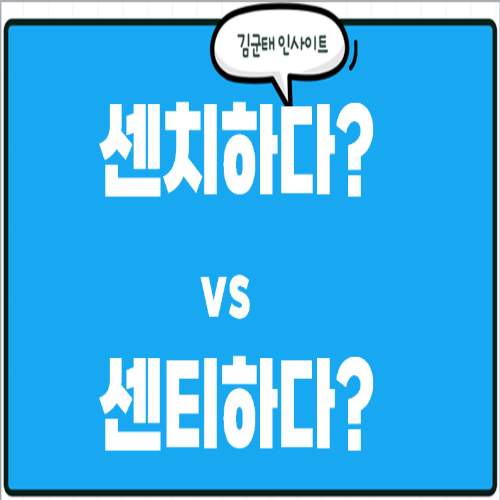


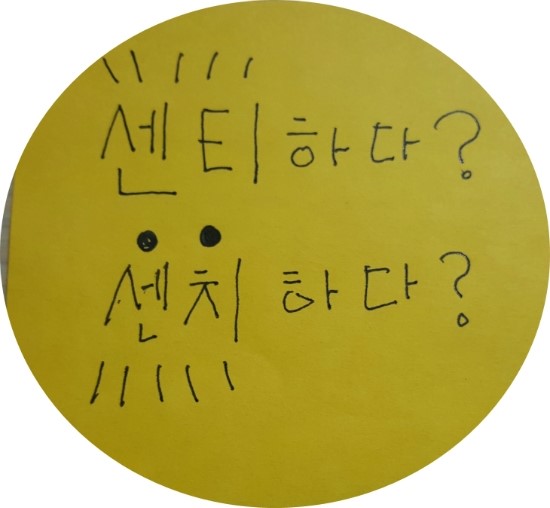

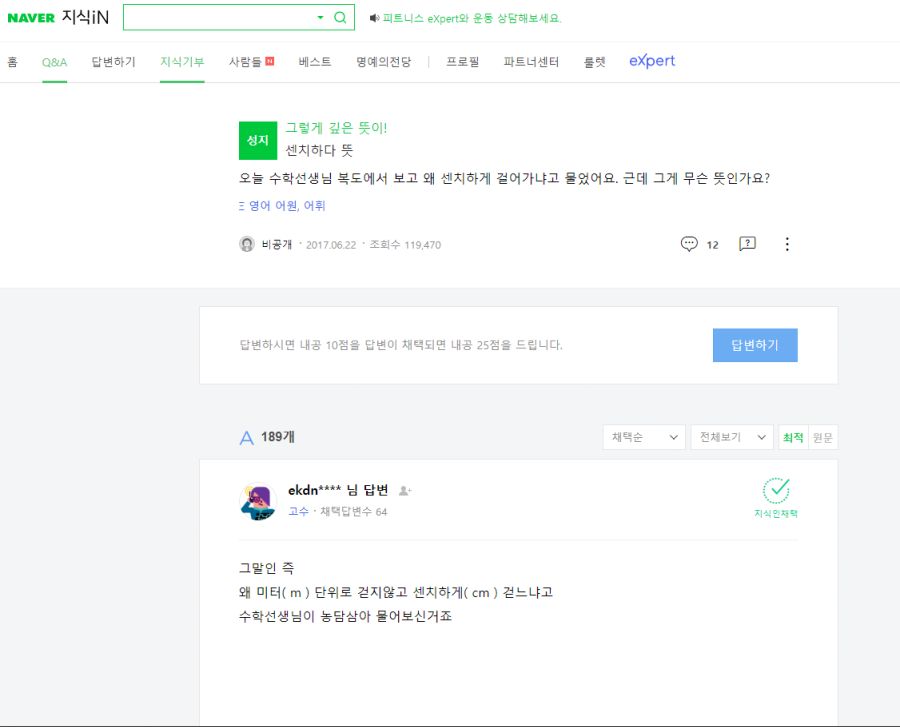











![[영어 표현] 센치하다 영어로 기억 회상하기! Remember vs Remind 실수! 너와 나의 Memories - YouTube [영어 표현] 센치하다 영어로 기억 회상하기! Remember Vs Remind 실수! 너와 나의 Memories - Youtube](https://i.ytimg.com/vi/66z2zayXAWU/maxresdefault.jpg)

![SMS MEDIA - [Hidden Artist] 싱어송라이터 선겸 Sms Media - [Hidden Artist] 싱어송라이터 선겸](https://ksoundlab.com/xe/files/attach/images/14108/435/013/96d4919f132a232a2271e8395ace8a8f.jpg)
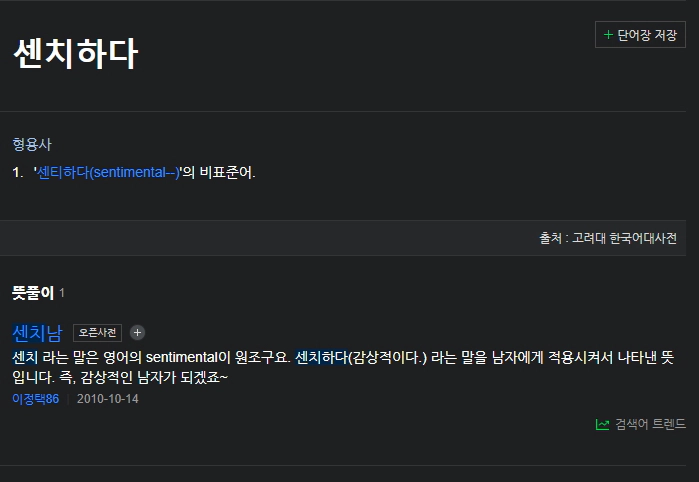



![[캐치]류하는 오늘 센치하다 | 아프리카TV VOD [캐치]류하는 오늘 센치하다 | 아프리카Tv Vod](https://iflv14.afreecatv.com/clip/20231013/821/b508184e-bb2f-4654-aa00-24aaa25123ce/2140821_r.jpg)




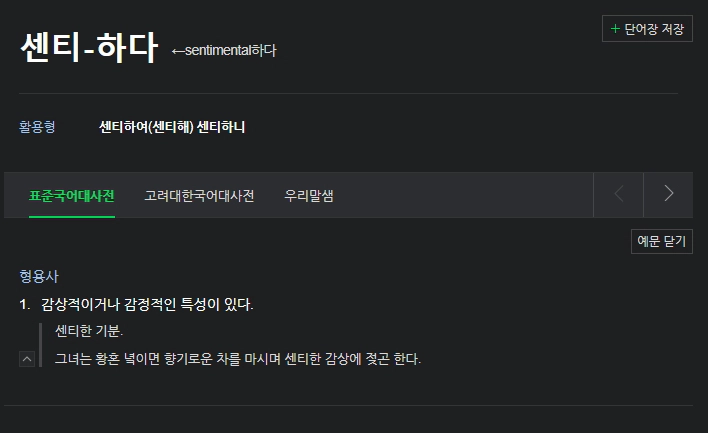
![[일본여행]일본 소도시의 정취를 듬뿍 느낄 수 있는 오카야마 여행 : 네이버 블로그 [일본여행]일본 소도시의 정취를 듬뿍 느낄 수 있는 오카야마 여행 : 네이버 블로그](https://postfiles12.naver.net/20110616_91/ichufs_1308192910154JQ2Oh_JPEG/IMG_2712s.jpg?type=w1)


![[캐치]가을 바다 그리고 음악 누렁이 센치하다 | 아프리카TV VOD [캐치]가을 바다 그리고 음악 누렁이 센치하다 | 아프리카Tv Vod](https://iflv14.afreecatv.com/clip/20231026/530/416a7dbf-4821-4570-bfac-f1c0078a0561/2211530_r.jpg)



![비는 센치할 정도만 내렸으면[IT칼럼] 비는 센치할 정도만 내렸으면[It칼럼]](https://img1.daumcdn.net/thumb/S1200x630/?fname=https://t1.daumcdn.net/news/202208/23/weeklykh/20220823081056528lfqw.jpg)






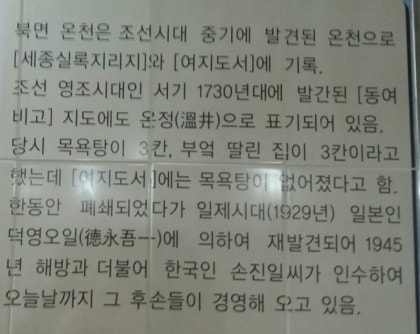









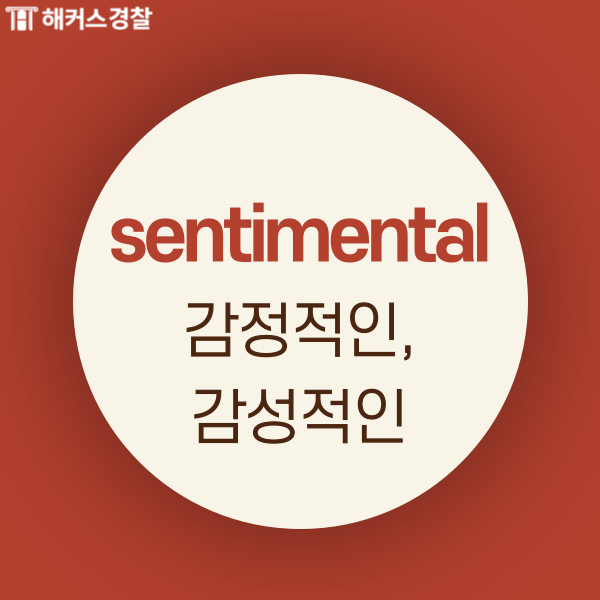


![[일본여행]여행자에게 휴식이 되는 교토의 소소한 일상 풍경 : 네이버 블로그 [일본여행]여행자에게 휴식이 되는 교토의 소소한 일상 풍경 : 네이버 블로그](https://blogthumb.pstatic.net/20110531_139/ichufs_1306806747379jUyCG_JPEG/20110531kyoto_cover.jpg?type=w2)



![[오늘의 노래 추천] winner-센치해 입니당 ㅎㅎ : 네이버 블로그 [오늘의 노래 추천] Winner-센치해 입니당 ㅎㅎ : 네이버 블로그](https://blogthumb.pstatic.net/20160212_27/apple_42_1455242655954KOj4e_JPEG/K-001.jpg?type=w2)




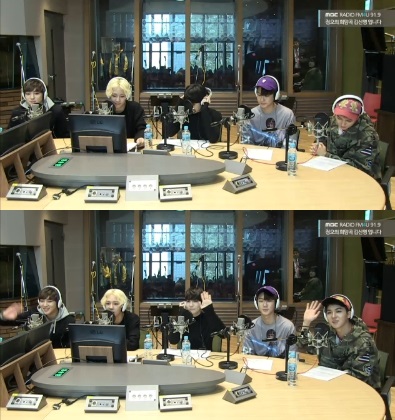



![[인도 엿보기]인도의 수행자 사두(sadhu) : 네이버 블로그 [인도 엿보기]인도의 수행자 사두(Sadhu) : 네이버 블로그](https://blogthumb2.naver.net/20100712_179/ichufs_12788954170615hhnK_jpg/tobira_sadu_ichufs.jpg?type=w2)





이 기사에 대한 링크: 센치하다.
Xem chủ đề này để biết thêm chi tiết. 센치하다.
- 센치하다 뜻 제대로 알아보자 – 네이버블로그
- 센치하다의 뜻 알고 계신가요?
- 센치하다 뜻 알아봅시다 – 오늘의 잡학사전
- 센치하다 뜻 센치해 센티하다 – 이슈코끼리 – 티스토리
- 센티하다 뜻 (동의어 : 센치하다) 알아보기 – 파란범고래 – 티스토리
- 센치하다 라는말이 좋은뜻인가요??
여기서 더 보기: canhocaocapvinhomes.vn/science